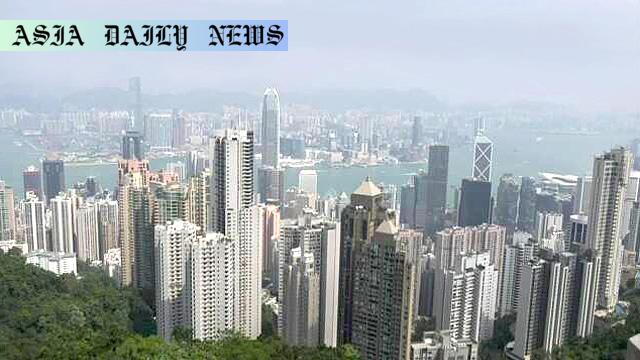Hong Kong students – Hong Kong Chief Executive John Lee offers aid to students displaced by US policies, opening doors for new opportunities.
- Key Point 1: Hong Kong Chief Executive John Lee expresses willingness to assist foreign students facing US policy challenges.
- Key Point 2: Admission caps for non-Hong Kong students have been increased from 20% to 40%.
- Key Point 3: Institutions like Hong Kong Polytechnic University promise scholarships and housing assistance for transfers.
- Key Point 4: Observers suggest this move restores Hong Kong’s global reputation amidst National Security Law concerns.

Hong Kong Steps Up in Support of International Students
In an unforeseen turn of events, Hong Kong has drawn global attention by extending a helping hand to international students, particularly those facing hardships due to recent U.S. policies. Hong Kong Chief Executive John Lee has expressed an unprecedented willingness to accommodate such students. This move seems to counter the turbulence created by the administration of former U.S. President Donald Trump, who revoked Harvard University’s certification to admit international students.
As reported, Lee underscored the inclusive nature of this initiative by stating that Hong Kong would welcome any students who feel discriminated against under U.S. policy. By leveraging the resources of Hong Kong’s University Grants Committee, the government aims to ease the logistical and administrative burden for these individuals. These developments signal Hong Kong’s efforts to position itself as a serious contender in the global academic and intellectual domains.
Raising Admission Caps for a Brighter Future
Ahead of implementing its initiatives, Hong Kong has already made remarkable adjustments by drastically increasing the admission cap for students from outside the territory. Previously restricted to 20%, this limit has been doubled to 40%, showcasing a flexible and forward-thinking approach to dealing with the global brain drain issue. Institutions such as The Hong Kong University of Science and Technology and Hong Kong Polytechnic University have stated their willingness to accept transfer students from institutions like Harvard, allowing students a seamless continuation of their academic pursuits.
Efforts to revamp opportunities for students are reinforced with offerings of scholarships, visa assistance, and housing provisions. Far from being a mere policy adjustment, this marks a substantive bid to establish Hong Kong as a premier destination for global education.
Enhancing Hong Kong’s Global Image
The world has observed Hong Kong’s reputation shift under the lens of the controversial National Security Law. While this legislation intended to curb anti-government sentiment, it unintentionally cast a shadow over Hong Kong’s image as a liberal global hub. Acknowledging this, officials now channel their efforts towards initiatives like supporting displaced students as a way of mending international relations. Observers believe this to be a calculated but necessary move, positioning the city as a reliable and inclusive jurisdiction for international collaborations. Hong Kong is seemingly leveraging its high-quality academic institutions and robust infrastructure to re-establish itself as a global city of choice for students and professionals alike.
By extending its policies to accommodate those affected by geopolitical disruptions, Hong Kong is paving the way for its global outreach to solidify. This gesture not only helps to foster goodwill across international borders but also strengthens cultural exchange and investment potential for the territory.
Targeting International Talents Amidst Global Challenges
In the broader context, this initiative supports Hong Kong’s well-executed strategy to remain competitive in the global scene. The COVID-19 pandemic and varied political situations have sparked a significant migration of global talents. Hong Kong is shrewdly preparing itself to capitalize on this trend by offering compelling alternatives to students eager for academic consistency without political or legal hindrances. The competitive nature of its academic institutions, coupled with merit-based financial aid and campus accommodations, shines as a viable market advantage.
With such strategic planning, Hong Kong seems not only ready but also eager to cater to a diverse student palette while fostering progress. This could successfully ensure a dynamic transfer of knowledge, promoting the interdependent values of globalism in education.



Commentary
A Significant Opportunity for Students to Explore Hong Kong
When reading the recent announcement from Hong Kong’s Chief Executive John Lee, there is much to admire about the territory’s decision to support displaced international students. At its heart, this is more than just a political decision—it’s also a humane response to the uncertainties and challenges faced by students worldwide. By focusing on inclusivity and leveraging its robust educational framework, Hong Kong sends a powerful message of global solidarity and tactful diplomacy.
For many, the thought of transferring to a new academic environment amidst personal and global chaos is daunting. Hong Kong’s efforts to provide scholarships, ease the visa process, and assist with housing reflect a deep understanding of these struggles and an actionable approach to addressing them. It is also a reminder of the role of educational institutions as sanctuaries, prioritizing knowledge over borders.
Restoring Trust in Global Partnerships
Hong Kong’s desire to restore its global image highlights the complexity of managing both domestic and international perceptions. The challenges posed by the National Security Law undoubtedly dented the territory’s previously liberal standing, and yet this new initiative demonstrates a careful recalibration. Its willingness to embrace international students reminds us of the importance of cultural exchange as a bonding agent within global communities. This approach not only enriches its educational ecosystem but also intertwines the values of tolerance and collaboration.
Overall, Hong Kong’s embrace of displaced talents from the U.S. serves as a proactive measure in uncertain times. It addresses immediate concerns while laying down a roadmap for becoming a global hub of academic, intellectual, and cultural excellence.